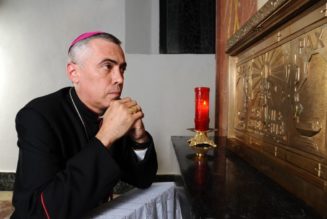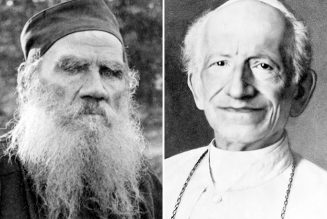ROME – Amid a broad spectrum of reactions unleashed by Fiducia Supplicans, a new Vatican document permitting non-liturgical blessings of same-sex couples, Ukraine’s Greek Catholic Church has become the first eastern communion to declare explicitly that the document does not apply outside the Latin Church.
“On the basis of canon. 1492 of the CCCC this Declaration concerns purely the Latin Church and has no legal force for the faithful of the Ukrainian Greek-Catholic Church,” said Major Archbishop Sviatoslav Shevchuk, head of the Church, in a Dec. 22 statement.
Shevchuk was referring to a provision of the Code of Canons for the Eastern Churches, which states: “Laws enacted by the supreme authority of the Church, in which the passive subject is not expressly indicated, affect only the Christian faithful of the Eastern Churches insofar as they treat matters of faith or morals or declarations of divine law, or these Christian faithful are explicitly included in these laws, or they grant a favor which contains nothing contrary to the Eastern rites.”
In effect, Shevchuk said that the concept of “blessing” carries a different meaning in Eastern theology and spirituality.
“According to the liturgical practice of our Church, the blessing of a priest or bishop is a liturgical gesture that cannot be separated from the rest of the content of liturgical rites and reduced only to the circumstances and needs of private piety,” he said.
“According to the traditions of the Byzantine rite, the concept of ‘blessing’ means approval, permission or even an order regarding a certain type of actions, prayer and ascetic practices, in particular certain types of fasting and prayer,” Shevchuk said.
“It is obvious that the blessing from the priest always has an evangelistic and catechetical dimension, therefore it cannot in any way contradict the teaching of the Catholic Church about the family as a faithful, indissoluble and fruitful union of love between a man and a woman, which our Lord Jesus Christ raised to the dignity of the Holy Sacraments of Marriage,” he said.



![You can’t cancel me, because I quit [WSJ paywall]…](https://salvationprosperity.net/wp-content/uploads/2023/03/you-cant-cancel-me-because-i-quit-wsj-paywall-327x219.jpg)
![More horrifying images turn up in pitch-black ‘Baalenciaga’ ad campaign [caution: disturbing photos in this story]…](https://salvationprosperity.net/wp-content/uploads/2022/11/more-horrifying-images-turn-up-in-pitch-black-baalenciaga-ad-campaign-caution-disturbing-photos-in-this-story-327x219.png)



